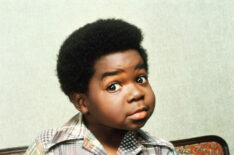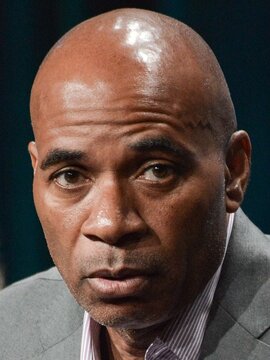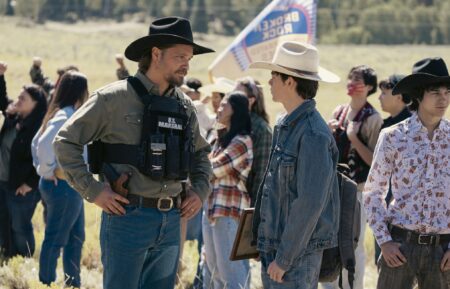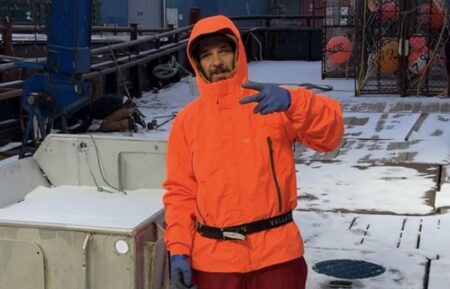Gary Coleman’s Ex-Wife Receives Polygraph Test Results Over Involvement in His Death (VIDEO)
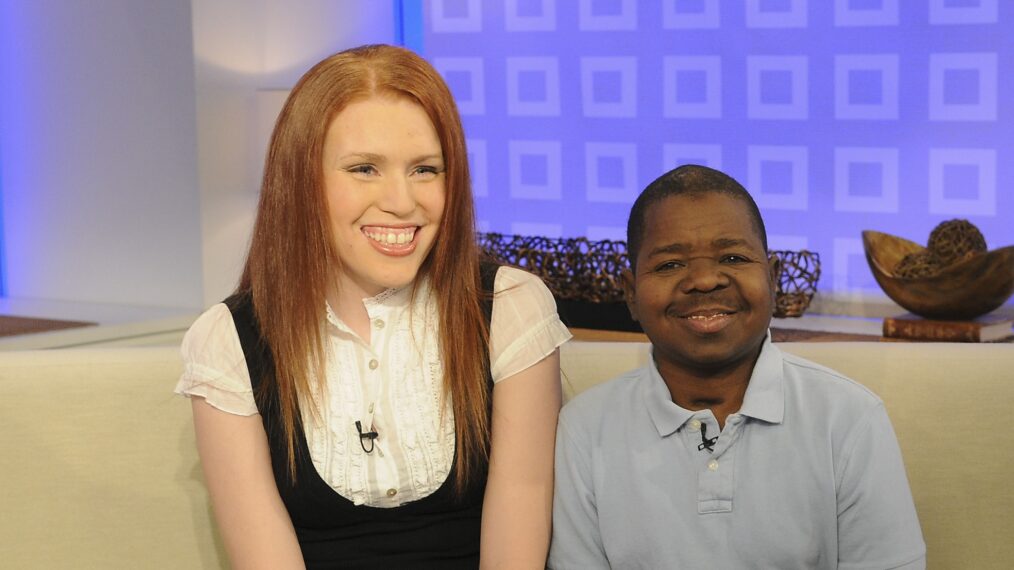
Exclusive
[Warning: The below contains spoilers for the Lie Detector: Truth or Deception premiere]
The Gary documentary brought renewed scrutiny surrounding the controversial 2010 death of actor Gary Coleman. Since then, his ex-wife Shannon Price has been under a cloud of suspicion that she had something to do with the Diff’rent Strokes star’s demise. She made the 911 call after he allegedly fell down the stairs in the Utah home. Despite never being charged for the crime, Price hoped to change the court of opinion through Lie Detector: Truth or Deception by taking the test.
Built off the response to Casey Anthony’s Parents: The Lie Detector Test special last year, A&E decided to expand into a full-on docuseries. Award-winning investigative journalist Tony Harris returns to host. He’ll once again be joined by George Olivo, former FBI agent and veteran polygraph examiner, to administer the test to the subjects. The two-hour premiere on July 10 centers on Price answering three burning questions including if she ever struck Coleman during their relationship, if she intentionally decided to withhold help to Coleman when he fell and if she physically caused his fall or caused him to fall that day.
Later in the seven-episode season comes Matheau Moore, who was acquitted in 2022 of murdering his wife Emily Nobes. He looks to silence suspicion he was involved. Edward Ates spent 20 years in prison for the murder of a neighbor he insists he didn’t commit. He seeks to clear his name. Jesse Holton was accused of killing his parents in 2016 but was never tried due to lack of evidence. Holton agrees to test to help erase any doubts.
Here Olivo sits down for our own line of questioning about what’s to come.
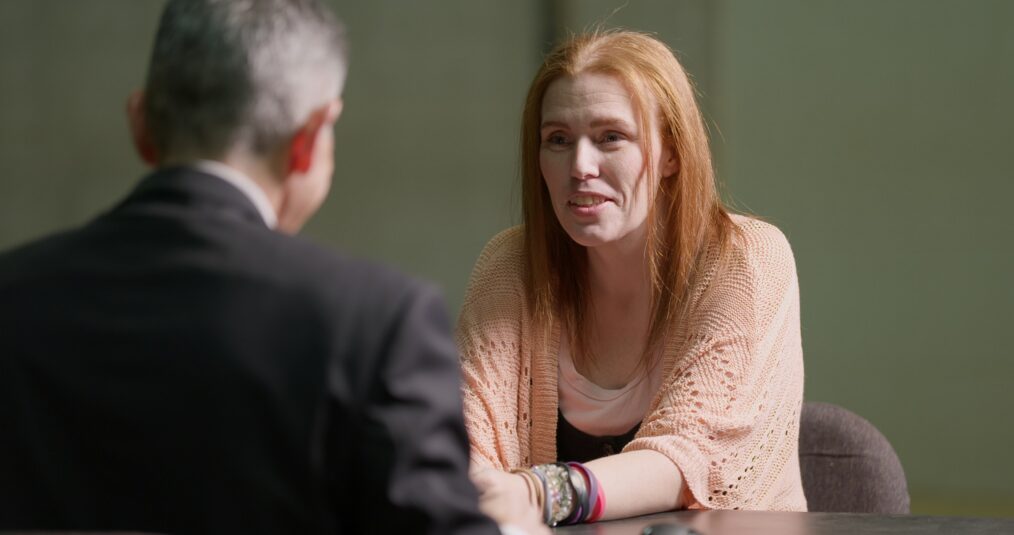
A&E
You’ve done so many of these tests over the years. How was it conducting these for TV?
George Olivo: I just want to say I take my hat off to A&E for letting me do a legit polygraph exam. There is a huge difference between a legitimate polygraph and what you normally see on TV normally in talk shows and movies. So, they gave me a lot of space to do legitimate work. I think in just about every episode, within five minutes of meeting the person and starting to talk to them, the cameras and lights just disappeared. We spent two hours, sometimes longer, on each of these polygraph examinations to do a legitimate test and get good results.
Is there anything you learned from the experience from the Casey Anthony’s parents special?
Not really. I treat every exam as a serious issue. Whether we are in a trainer’s office or my office or at the FBI or in a studio, I treat it as an examination and do what I know how to do. I kind of describe myself as an umpire. If I’m going into a little league game or a World Series, the job is still the same, calling balls or strikes.
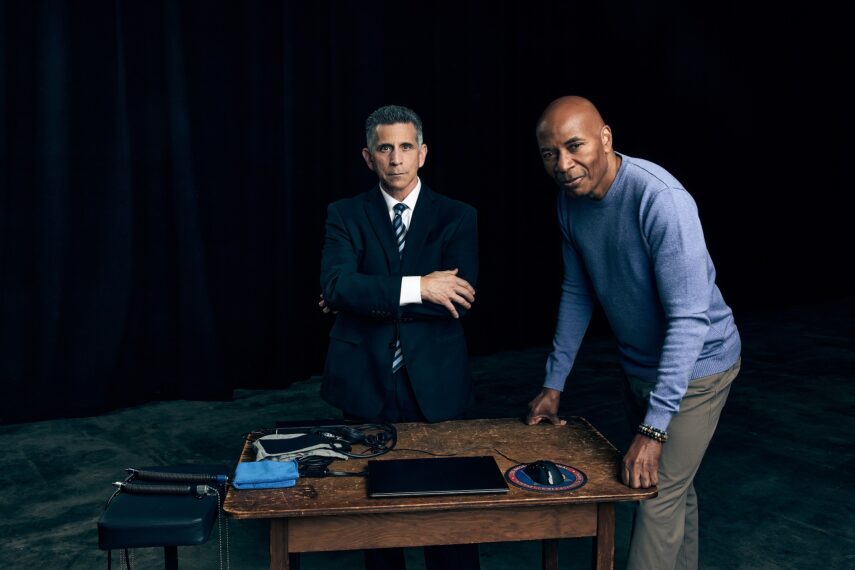
George Olivo and Tony Harris (Joseph Ross/A&E 2025)
These are complex cases that are tackled. Tell me about how you formulate your line of questioning.
A legitimate polygraph is based on what we call test question construction. It is very important to ask the right questions. If not, your results are going to be off. We call that isolating the issue. In some cases, isolating the issue is very important. So, if there is a bank robbery, isolating the issue is kind of easy. Did you rob a bank? In some cases, it’s a little bit different. Now with the television aspect, they want to know a few other things. We are actually testing more than we would in law enforcement because they want to know about secondary issues as well.
It’s still about isolating the issues and constructing the questions so that it is fair, meets protocol and is not an inflammatory question that is going to invoke emotion. Then it’s doing a very good job of explaining that question to the person very clearly for the test. We call that scoping the question. So, if I ask you if you robbed the bank, I may spend five minutes explaining that question. What do I mean by rob? What do I mean by bank? What bank am I talking about? With Shannon, we talked a lot about intentionality, deciding not to render care. Or physicality, we talk about physically causing his fall. We spent a lot of time making sure she really understood what I was asking her.
What were your first impressions meeting Shannon. Someone who comes off very anxious by nature. That has to be challenging when you are trying to get her to sit down, calm down and take the test.
Absolutely. She was very anxious, very nervous. A bit more so than the average person. She did complain a lot too about what I thought were irrelevant things. I started getting the impression that maybe she wasn’t there just to give the truth. If you are given a golden opportunity to clear your name and you are constantly complaining about the chair, lights, that it’s too hot or too cold or the room is too big. I started to have to reel her in a little bit because I felt she was starting to sabotage the otherwise legitimate process I was trying to conduct.
What goes into deciding the space where each of these testing sessions are taking place?
The production team figures it out and drives me to it. I didn’t know where until that day. I just tell them I want it to take place in a quiet place with minimal people. A place where they can, if possible, mount the cameras and leave. Sometimes there is a crew member there, but we can’t see him or hear him. Within five minutes, we’re all about conducting the test and explaining things to the examinee.
Shannon didn’t really like the results. Specifically, she failed with deception to the question if she physically caused Coleman to fall or if she physically caused Coleman to fall that day. There was a point you had to give her some tough love.
Exactly. At the end of the episode, I’m paraphrasing what she said, but she was not surprised. I think she was disappointed but not surprised. I asked her at the end of the examination, like I do everyone, if she felt I treated her fairly. She said, “Yeah, you treated me fairly.” I said, “Well, if I treated you fairly through everything and the process was legitimate, you’re not surprised you failed, there you go.”
What kind of impact do you think these lie detector tests and results will have? With Shannon, a lot of people close to Gary had suspicion about Shannon to begin with. The results only add to that.
It may not change the minds of anyone who thinks she was involved. For people who think she was not involved, it still may be hard to sway them. When people have an idea and an opinion, it’s hard to get them to change their mind. I’m not here to get them to change their mind anyway. I don’t think the show is about guilt or innocence. It’s really about what the title says, truth or deception. I just know very confidently, a hundred percent in my mind, that there is more to that story than Shannon has told. Does that mean Shannon is a cold-blooded murderer? I’m not saying that at all. I don’t know what happened in that house. I do know she is not telling the whole story. One thing I’m very confident about, and I said to her face, “There is more to the story, and I’m confident why you know you failed the test.” To sit there and say, “I don’t know why I failed. I was just nervous” is not the case.
What do you think is the biggest misconception or something that goes on with these testing that we don’t see as viewers?
I think that’s a great question because if all you’ve ever learned or seen about polygraphs has come from talk shows or movies, then you’ve never seen a legitimate polygraph. This series does something that has never been done before in that it exposes the inner-workings of a legitimate polygraph. You’ll see different things where we have to adjust for different people when it comes to their temperament and issues at hand. It’s a legitimate process. I think it’s going to be fascinating for people who have never seen a legitimate polygraph at work.
How often do you find things get particularly contentious when the participant gets the results they don’t like?
It has happened before. It has happened before in my career. I don’t want to give anything away, but when it comes to this series, it does happen once at least. Why it doesn’t happen very often is because I do try to treat people fairly. If they fail a test, I’m not there to berate them or say they are a bad person. I’m an umpire calling a ball or strike. I can tell someone in no uncertain terms that they are not being honest on a particular day. There is no judgment. Lying about something doesn’t make you a horrible person. It doesn’t make you a liar necessarily. It just means on this issue you weren’t being truthful.
I feel at this point you probably don’t even need a polygraph to tell someone isn’t telling the truth.
People ask me that all the time if I can just tell by looking at them. I always tell them that I’d rather rely on the equipment because it’s more accurate. Having said that, there is so much that goes into a polygraph through my pretest interview. It is rather lengthy. We don’t have time to show everything. During the pretest I ask different types of questions to get a good feel of how the person is going to do on the test. We want to see how they will react. Are they going to deflect? It’s all very telling. I was also an adjunct professor in the FBI and taught interview and interrogation. Agents and investigators were there because they wanted to learn how to detect deception and how to conduct good interviews and interrogation.
How is it having this second career? What is it that keeps you doing these during your post-FBI career?
I actually do more exams now than I did when I was in the FBI. I have my own private practice in Los Angeles. When I was in the FBI, it was all about federal prosecutions. Making the case. In some cases, unlocking the truth meant protecting national security because I did a lot of terrorism and espionage exams as well. Now it’s all about the people. Not just the individuals who sit in my polygraph chair, but all the lives that are affected by these results.
People come into my office on a weekly basis saying I saved their marriage or gave them their life back because they were contemplating suicide because they were accused by family for child molestation or something that wasn’t true. It really does have a huge impact. Those moments never get old. For me to be a part of that and for people to trust me with this important process and to get it right. There is a lot of pressure, even being retired. You want to get it right. If I’m going to test someone accused of child molestation and say you didn’t do it, I better be right. It never gets old. I wake up every day excited to do a good job and unlock the truth. That’s the buried treasure we are after.
Lie Detector: Truth or Deception premiere, July 10, 11/10c, A&E

